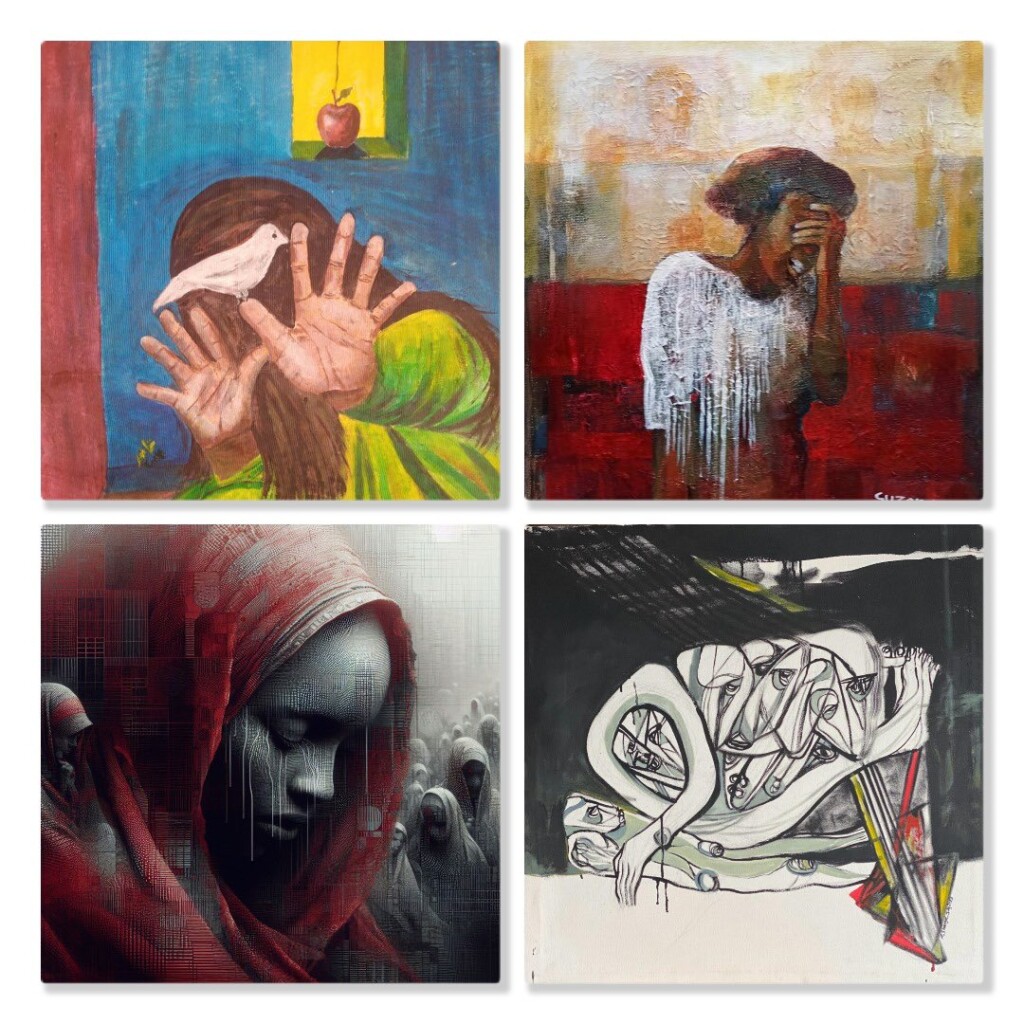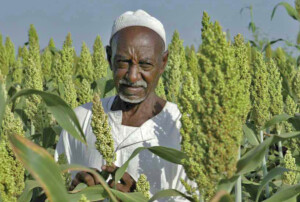Sexual violence against Sudanese women and children in El Gezira

Drawings and paintings about rape and sexual violence in Sudan (Image: Sudanese Together Against Rape and Sexual Violence Campaign)
The Strategic Initiative for Women in the Horn of Africa (SIHA) has documented 25 cases of rape in El Gezira involving girls aged between 11 and 17, in addition to six cases of suicide linked to rape incidents since October 20. Testimonials about cases of torture, gang rapes, and suicides among women subjected to sexual violence continue to proliferate.
These statistics were reported during an online press conference, held by SIHA yesterday to discuss the situation of women and girls in El Gezira, in addition to the challenges facing the provision of humanitarian aid and the protection of civilians. The conference proceeds was not published at the time of writing.
On the same day, the United Nations Office for the Coordination of Humanitarian Affairs (OCHA) in Sudan reported that “alarming reports of sexual violence against young girls and adolescents continue to be reported, with some yet-to-be-verified cases of women and girls subjected to sexual assault and violence committing suicide.”
During the press conference, a human rights activist said that 48 rape cases had been documented in El Gezira since October 20, stressing that the actual number may exceed 200, due to logistical obstacles that hinder documentation processes.
Last week, Seleima Ishag, director of the Anti-Violence Against Women Committee told Radio Dabanga that they had monitored 21 rape cases linked to the attacks in El Gezira. Recording the number of cases of sexual violence is reportedly an ongoing issue due to the war, social stigma, travel difficulties, lack of cash, and communication issues.
Ayin Network tweeted on X yesterday, in response to the press conference, also noting the number of recorded cases is likely lower than the actual number. “This is, sadly, what has been confirmed so far. There are likely far more. Many of these children were raped in front of their relatives,” said the media organisation.
Personal accounts
SIHA Protection and Response Coordinator Adila Abu Bakar, reviewed the patterns of sexual violence that women and girls are exposed to, based on the testimonies of victims, during the conference.
An eyewitness from El Gezira presented personal testimonies of the situation in the region during the press conference. She confirmed that social stigma hinders the documentation of sexual assault and the provision of necessary services to survivors. She noted that sexual assault poses a great danger to their lives.
The eyewitness detailed challenges facing documentation efforts in eastern El Gezira, including the difficulty of movement due to unsafe roads and reliance on donkey carts, which have recently been stolen. She said that drivers are charging exorbitant prices to transport civilians, further complicating the humanitarian situation in the area.
There is also a lack of cash, and Starlink devices have been confiscated by the Rapid Support Forces (RSF), which limits communication, according to the eyewitness.
Humanitarian situation
Mohammed Osman, a Sudanese researcher at Human Rights Watch, discussed patterns of war crimes in El Gezira, highlighting the lack of necessary protection for civilians.
The brutal campaign has resulted in over 1,000 civilian deaths across 50 villages and widespread sexual violence against women and girls, according to SIHA.
About 135,400 people have been displaced from various locations in El Gezira since 20 October, according to the latest update published by OCHA yesterday. The newly displaced people have reportedly arrived in 16 localities in El Gedaref, Kassala, and River Nile states.
Sami Mahmoud, Sudanese gynaecologist and President of the African Federation of Obstetrics and Gynaecology, pointed to the major challenges facing health sector workers, especially in providing sexual and reproductive health services in a risky environment.
‘Alarming pattern’
The RSF launched a large-scale attack on villages in eastern, northern, and western El Gezira and Central Sudan after the RSF commander of El Gezira, Abu Agla Keikel, defected and rejoined the army on October 20.
Clementine Nkweta-Salami, the United Nations Resident and Humanitarian Coordinator in Sudan, expressed deep concern on October 26 over escalating armed violence perpetrated by the RSF in El Gezira. “I am shocked and deeply appalled that human rights violations of the kind witnessed in Darfur last year – such as rape, targeted attacks, sexual violence, and mass killings – are being repeated in El Gezira. These are atrocious crimes,” she said.
The United Nations fact-finding mission on Sudan investigation, released on October 29, shows an “alarming pattern” of sexual and gender-based violence by the RSF, particularly in Greater Khartoum, Darfur, and El Gezira. These acts appear intended to terrorise civilians, punish perceived adversaries, and suppress resistance, according to the report.











 and then
and then